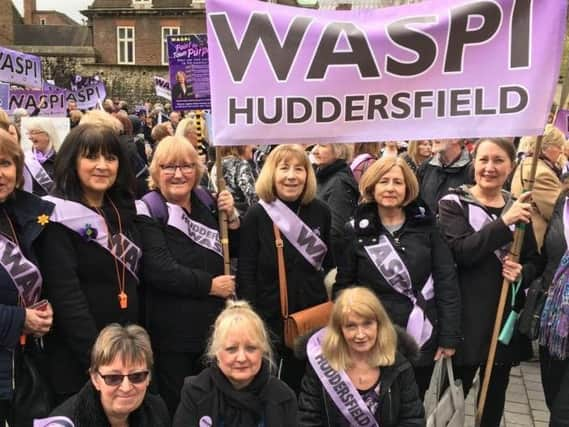Ombudsman's ruling provides vindication for WASPI campaigners - Greg Wright


But over time, independent adjudication can provide vindication for your arguments, even if compensation proves elusive for the victims.
Four years ago, I attracted widespread criticism from a host of self-appointed “experts” after I voiced support for a campaigning group which claimed that millions of women were facing hardship because of the botched manner in which the Government handled measures to equalise the state pension age.
Advertisement
Hide AdAdvertisement
Hide AdMembers of Women Against State Pension Inequality (WASPI) claimed the Government had given them nothing like sufficient notice to plan for state-enforced changes to their own retirement planning. The group argues that around 3.5 million women who were born in the 1950s were not given enough time by the Government to react to plans to ensure men and women retired at the same age.
In 2017, Angela Madden, a director of the WASPI campaign, told me: “Many women born in the 1950s started work at 15 years old, and have worked for more than 40 years paying into the National Insurance fund expecting to retire at 60.”
Ms Madden said that the 1995 Act set out to equalise the state pension age for women and men, so women’s pension age was set to rise to 65 by 2020.
She added: “The 2011 Act brought this rise forward to 2018, and raised both men and women’s pension age to 66. Unfortunately, no one thought to tell us,’’ she added. “Some women received letters only two years before their expected retirement date informing them that their state pension age was up to six years later. Some women still haven’t been informed.”
Advertisement
Hide AdAdvertisement
Hide AdWASPI doesn’t want the Government to reverse the changes to the state pension age, but it is seeking fair transitional arrangements for all the women affected.
An ombudsman has now ruled that the Department for Work and Pensions (DWP) failed to communicate changes to the state pension age to women with enough urgency.
The Parliamentary and Health Service Ombudsman (PHSO) said the department failed to act quickly enough once it knew a significant proportion of women were unaware of the changes.
The PHSO said that from 2005 onwards, there were failings in the action taken by the DWP to communicate the state pension age. The ombudsman said its investigation will go on to consider recommendations to put things right.
Advertisement
Hide AdAdvertisement
Hide AdAmanda Amroliwala, Parliamentary and Health Service Ombudsman CEO, said: “After a detailed investigation, we have found that the DWP failed to act quickly enough once it knew a significant proportion of women were not aware of changes to their state pension age. It should have written to the women affected at least 28 months earlier than it did.”
Despite this ruling, here is no sign of a Government U-turn.
A DWP spokesperson told the Press Association “Both the High Court and Court of Appeal have supported the actions of the DWP, under successive governments dating back to 1995, and the Supreme Court refused the claimants permission to appeal. In a move towards gender equality, it was decided more than 25 years ago to make the state pension age the same for men and women.”
This, however, may not be the end of the matter. At the last election, the Labour Party pledged to compensate WASPI women, and the Liberal Democrats have hailed the ruling as a victory for all the WASPI campaigners.
Advertisement
Hide AdAdvertisement
Hide AdThe ruling is a triumph for everyone who believes the WASPI campaign is fundamentally about the principle of natural justice. Everybody has the right to be treated fairly by the state.
Given the dire state of the public finances, the Government will not be keen to provide a settlement that satisfies the campaigners’ demands in full.
But the ombudsman’s recommendations must be studied closely. It is still not too late to provide compensation for women who paid their taxes for years and have been let down so badly.